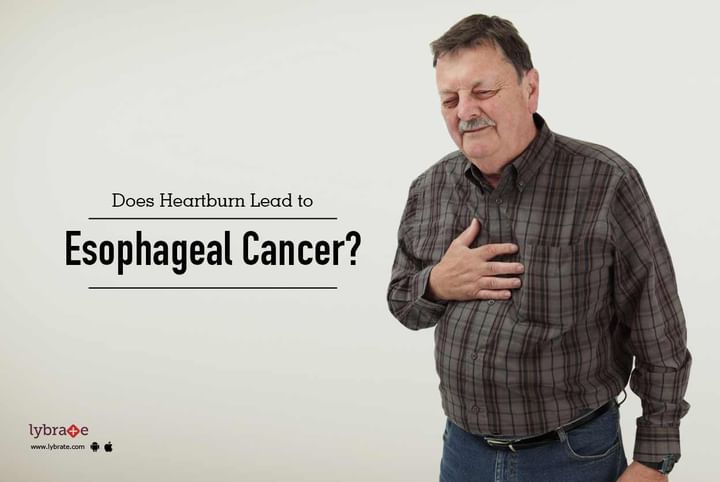Does Heartburn Lead to Esophageal Cancer?
Heartburn or acid reflex is a burning sensation that is felt in the throat or chest region after the intake of certain foods. While many of us must have felt heartburn once in our lifetime, too many occurrences such as this could be a fair indication of esophageal cancer.
How an acidburn is related to esophagus?
Esophagus is the tube which carries food from the throat to the stomach. In the case of an acid reflux, the acid from the stomach jumps to the esophagus leading to a condition known as the Barrett’s esophagus. This is a condition which replaces the tissue present in the esophagus with a similar kind of tissue found in the lining of the intestine. This being said, Barrett’s esophagus doesn’t necessarily lead to esophageal cancer.
Key symptoms of Esophageal Cancer
Difficulty swallowing is a key symptom of esophageal cancer. This condition is known as dysphasia. As the tumor grows bigger, it becomes more difficult to swallow food. Esophageal pain is also a common symptom reported by many patients. Loss in appetite and an unexplained weight loss are some of the other symptoms of this type of cancer. Although esophageal cancer does not show any visible signs in the early stage, some of the key indicators are chronic couch, indigestion and hoarseness of voice.
Key risk factors:
Some of the key risk factors for this type of cancer are as follows:
- Men tend to run a higher risk of getting this cancer than women.
- Esophageal cancer are often detected in people above the age of 55 or more
- Chronic tobacco users have higher chances of getting esophageal cancer
- Consumption of alcohol increases the risk of esophageal cancer
- Obesity increases the risk of acid flux thereby, leading to esophageal cancer
- Radiation treatment in the abdomen or chest area might also lead to esophageal cancer
How an esophageal cancer is detected?
Primarily there are 3 ways by which this cancer is detected. The first step for an oncologist to detect this cancer is to perform an endoscopy. If this fails, doctors often try a barium swallow on suspected patients and take an X-ray to understand the esophagus lining. If all this fails, doctors rely on a CT scan to detect this cancer.
How is esophageal cancer treated?
If a patient is lucky and the cancer gets detected in a very early stage, the tumor along with the infected cell can be surgically removed. Apart from surgery, some other alternatives are radiation and chemotherapy. A combination of radiation and chemotherapy or a surgery followed by radiation can also be suggested by the doctor. The treatment plan depends on the stage of detection.



+1.svg)
